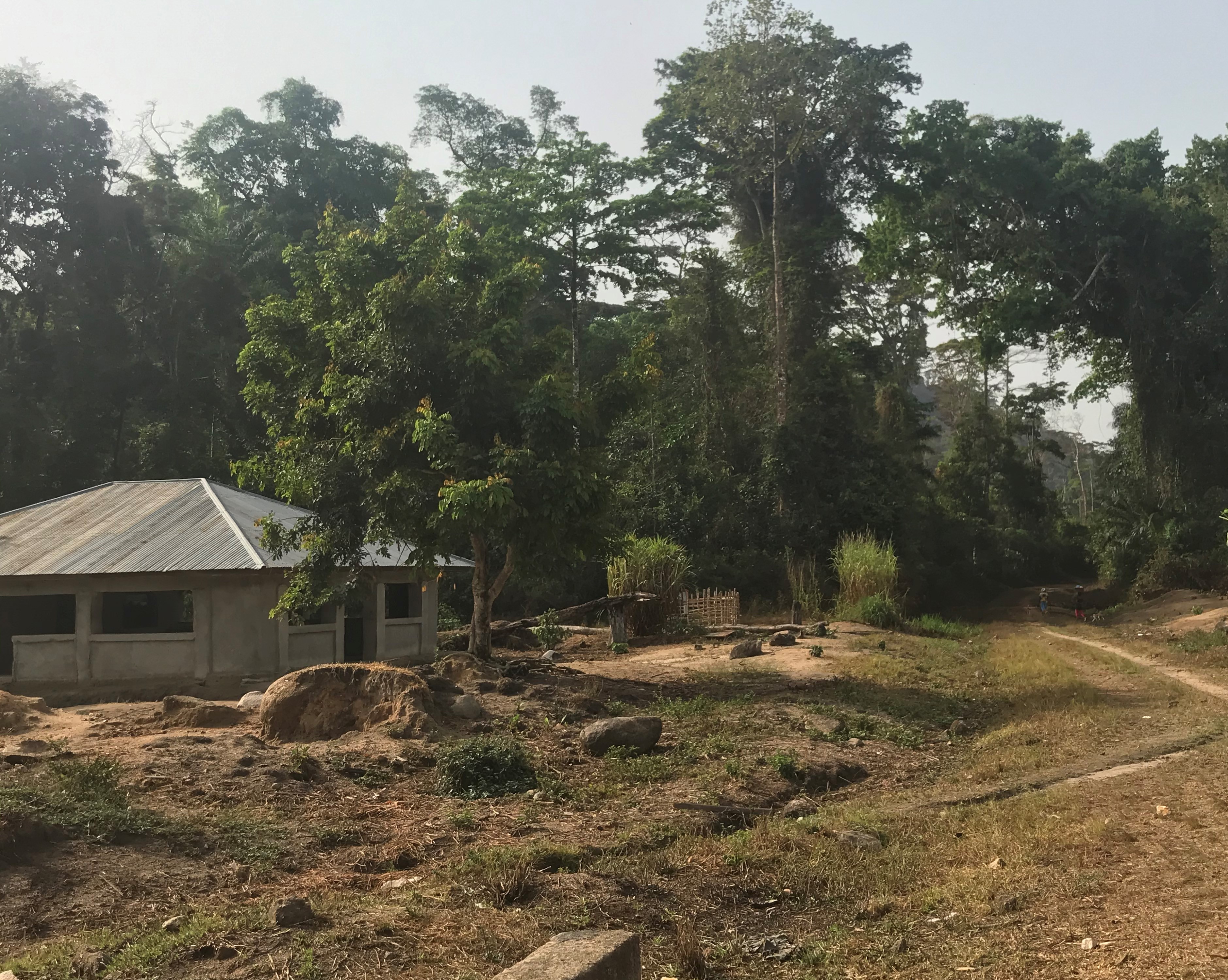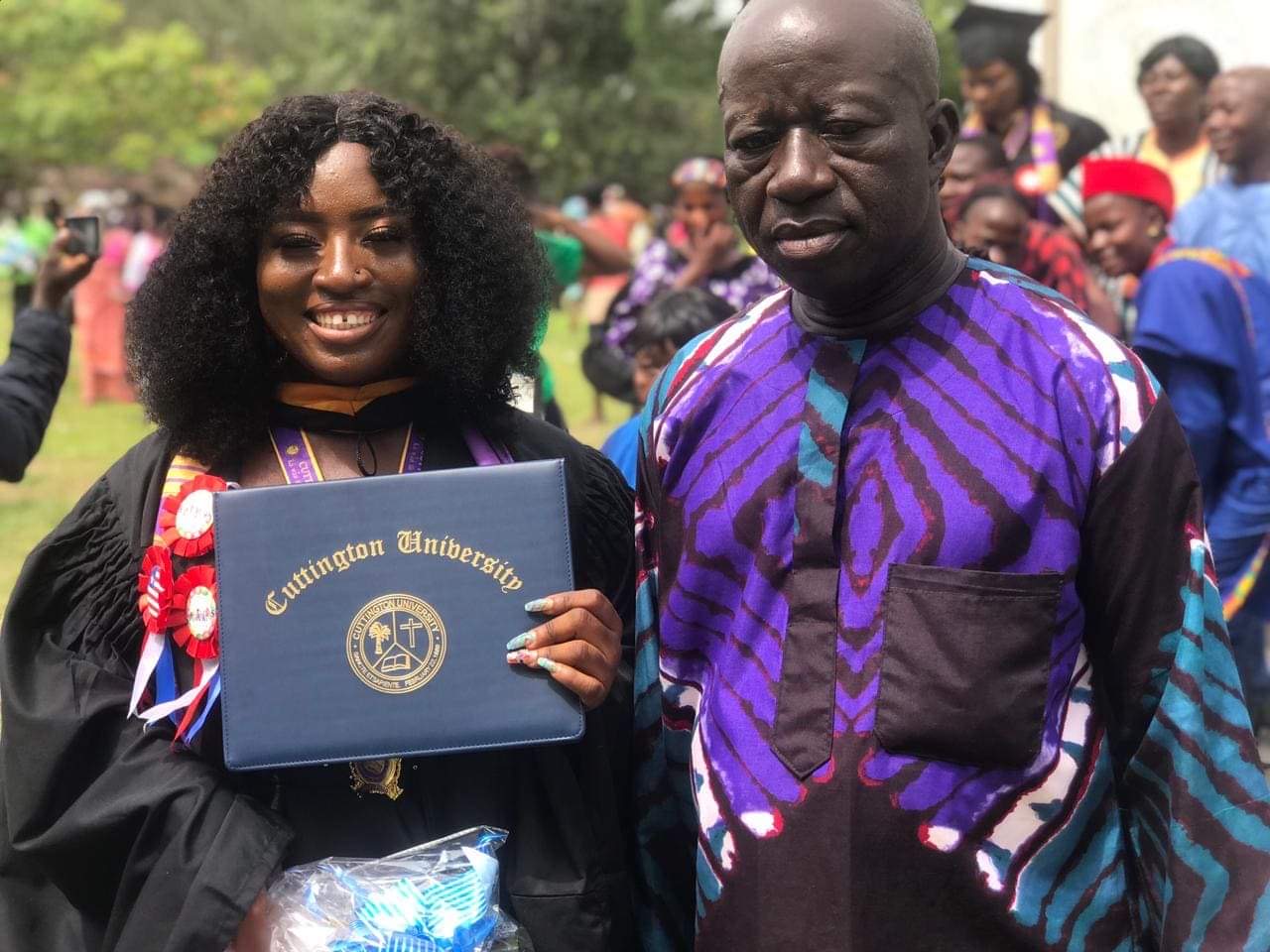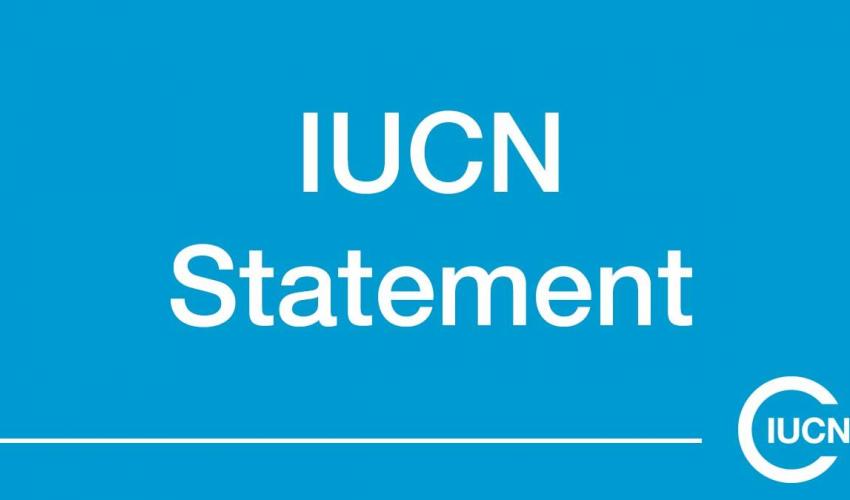Reflection on Advancing Community Engagement for Sustainable Forests in Northern Liberia
CEESP News: Mahawa Komala, Mandela Washington Fellow for Young African Leaders with CI’s Center for Communities and Conservation
Reflecting on her work with everyday ghandis in northern Liberia, Mahawa Komala describes how engaging communities in forest management in Liberia in times of urgent climate action can also promote peace and social cohesion. Communities face the highest stake and play a pivotal role in sustainably managing forest resources, therefore they should set the agenda for conserving forests and building resilience against climate change.

Photo: Mahawa Komala
My name is Mahawa Komala, serving as the Mandela Washington Fellow with Conservation International in the spring of 2022. During my fellowship, I gained insights into the complex challenges of conflict, conservation and social issues, and my experience is shaping my current efforts and professional career path.
In the face of global commitments recognizing the role of forests in meeting climate change goals, I work for everyday gandhis, a Liberian organization addressing the interdependence of these landscapes and local communities in northern Liberia. More than 100 leaders announced a declaration to end deforestation in 2030 during COP26 – a goal that will require broad and urgent action at all levels. Given how closely linked forests, climate change, and livelihoods can be in many parts of the world, including Liberia, it will be important to accompany lofty goals with strong and equitable policies on forest governance and the meaningful participation of local communities in the management and protection of forest resources.
Rural communities in Liberia see the impacts of climate change on their daily lives. These communities may already be social, economically, and politically marginalized. Despite local communities’ historic dependence on forests for livelihoods, forest cover is being lost at an alarming rate. In some cases, communities in Liberia face this challenge due to charcoal production, shifting cultivation, and other forms of agricultural practices. Changes in land use are diminishing the capacity of forests to protect communities during extreme weather events, underscoring how those living in rural areas are the most affected by climate change:
“We used to have a huge forest in Bakuma, our community was secured and protected from storms. But since the forest wearing away, the storms have been affecting our homes- taking off the rooftop and damaging smaller houses.” – Resident of Bakuma, a town in northern Liberia
Deforestation has also affected watershed management and the availability of water:
“10 years ago, we used to have access to clean and chill-water from creeks while going on our farms. We had dense forest everywhere back then, but now we no longer have access to water close by as we used to.” – Town chief of Konadu, one of the towns everyday gandhis is working with
During the last decade, the Food and Agriculture Organization (FAO) and Liberia’s government have supported plans to revive lowland farming to help farmers adapt to climate impacts, prevent further deforestation and soil erosion, and strengthen the country’s food security. However, barriers exist to this transition, with some farmers still preferring small-scale upland farming. According to some farmers everyday gandhis works with, who primarily cultivate rice, there is a gap in terms of making lowland farming more feasible:
“All we do is select a site; clear it by cutting smaller trees with a cutlass; burn the site before the rainy season. This usually happens from November to February” – Saybah B. Buwor, a rice and cocoa farmer in Korzomai – a small village in Voinjama District
“Lowland farming can be very expensive. We have to hire people to layout the swamp to control the flow of water through canals; construct floodways and spillways to facilitate the movement of water during the rainy season. We don’t have machines, technical knowledge, and the financial means to manage a lowland. This is one of the reasons we are involved in upland farming” – Vargular Monigo, a rice farmer in Korzomai
Given the challenges posed by losing forest, I lead everyday gandhis environment department in Voinjama. We engage communities through awareness-building, technical training, and education on forest regulations community rights, as we promote the role of forests in climate change and maintaining a healthy environment.
Training on alternative farming methods (such as subsistence farming in lowlands or sustainable mixed cropping) that could potentially reduce upland farming, promote forest conservation in rural communities and improve livelihoods comprises one of everyday gandhis’ key activities. Through our permaculture extension program, we have provided small-scale farmers with farming tools (cutlass, boots, shovel, watering cans) to improve production on their pepper, bitter-balls, and sugarcane farms.
This capacity building is combined with community forest protection efforts and reforestation projects in five communities in Voinjama. We’ve planted trees around storm-affected community members’ homes, in their forests, and on school campuses to raise awareness about climate change mitigation and adaptation and forest governance. We choose fruit and non-fruit trees with community members depending on the contextual need. This year, we intend to plant 500 native trees on forest land designated as a reserve by the communities we work with. It is important that we work with support from local leadership: the town chief, youth chairman, women’s groups, and everyday gandhis.
Everyday gandhis has contributed significantly to building community capacity in managing their forest. We have conducted training on forest governance and sustainable agricultural practices. Through our reforestation program, we have planted and continue to plant hundreds of fruit and non-fruit trees in communities affected by tropical storms.
Our experiences with these communities highlight how engaging communities in forest management in Liberia in times of urgent climate action can also promote peace and social cohesion. Community-based management of forest resources can also support livelihoods and help communities build resilience against climate change. Communities face the highest stake and play a pivotal role in sustainably managing forest resources, therefore they should set the agenda for conserving forests.
 Photo: Mahawa Komala
Photo: Mahawa Komala
Mahawa Komala served as the Mandela Washington Fellow for Young African Leaders with CI’s Center for Communities and Conservation from January to April 2022.



